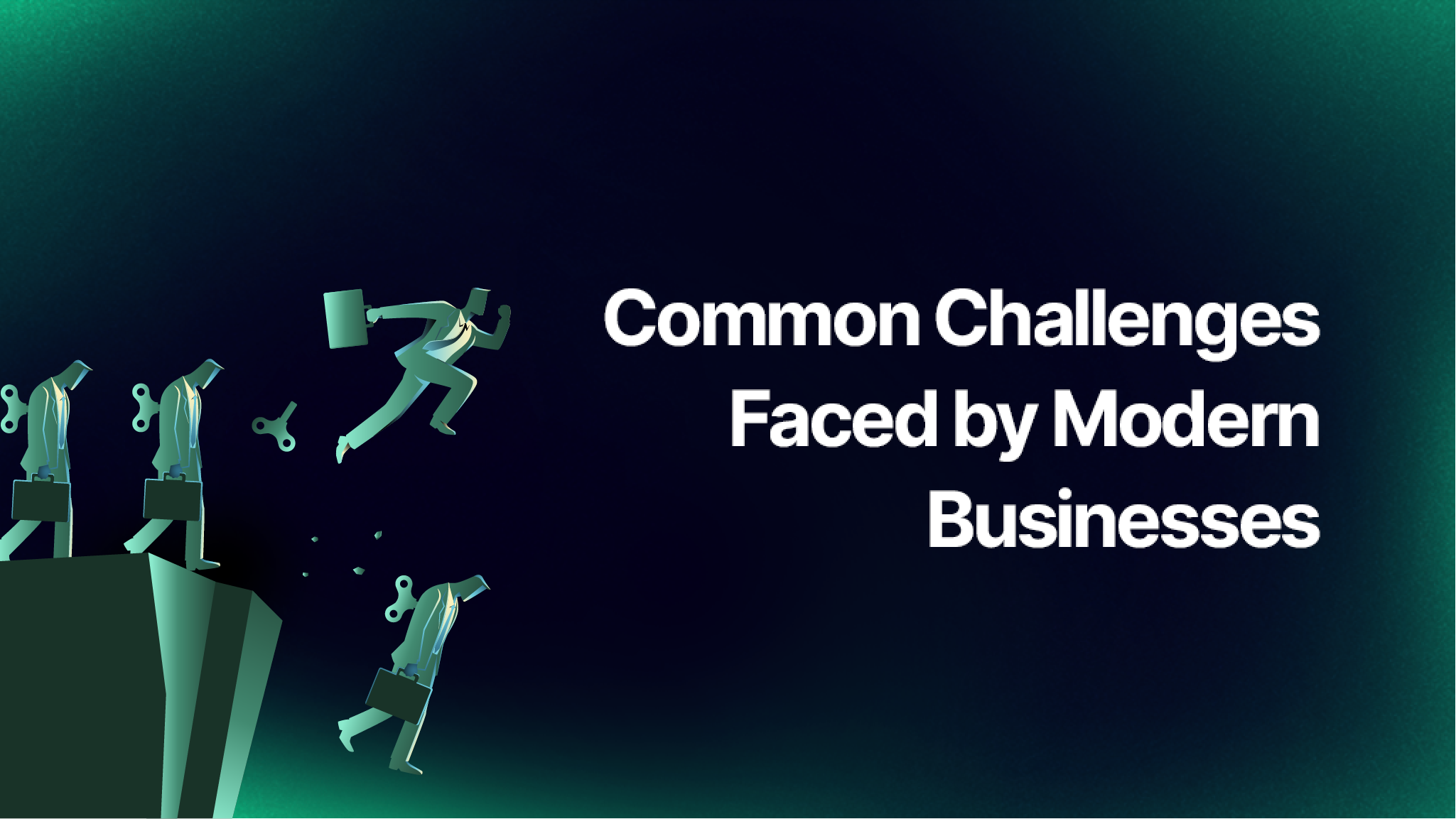Service-First, Resource-Stretched: Common Challenges Faced by Modern Businesses

Modern service-first businesses are built on care, trust, and a desire to help others, but good intentions don’t pay the bills. Whether you’re a boutique tax consultant, a small legal office, a travel planner, or a real estate advisor, you probably know the feeling: your heart is in the right place, but the system keeps testing your limits.
Let’s face it—today’s market is brutal. Clients expect on-demand communication, five-star service, and full digital integration. At the same time, you’re trying to stay profitable with a lean team, limited tools, and endless to-do lists. And that’s the reality for many resource-stretched businesses that put service first.
So what’s causing the real tension?
- Too many roles, not enough people. A single founder might also be the marketer, accountant, and customer support team—all before lunch.
- High expectations, shrinking budgets. Clients want big-agency results, but often at freelancer prices.
- Technology pressure. New tools promise growth, but adopting them requires time, money, and tech know-how you may not have.
And yet, despite all this, you show up. You care deeply. You hustle harder. Because it’s more than just business—it’s personal.
But what if you didn’t have to sacrifice your well-being to make an impact?
This article explores the most common challenges modern service-led businesses face across key sectors like legal, employment, travel, and more. We’ll uncover the hidden patterns, emotional toll, and practical solutions to help you thrive, not just survive.
You’re not alone if you’re tired of stretching yourself thin just to stay afloat. And yes, there is a smarter, more sustainable way forward.
Let’s break it down, sector by sector.

Account & Tax
Accounting and tax functions are no longer just about numbers—they’ve become a core part of strategic business decisions. For small and mid-sized businesses, staying compliant while managing limited resources is a growing challenge. With constant changes in tax laws and financial reporting standards, even routine tasks now require careful attention and specialized tools. As regulations grow more complex and client expectations rise, accounting and tax professionals must find ways to deliver accurate, timely service without burning out or underselling their value. This balance between compliance and sustainability lies at the heart of modern financial operations.
Rising Complexity in Regulations
The fast-changing landscape of financial compliance keeps accountants on their toes. Every year brings a new regulation, tax reform, or reporting requirement, making it harder for smaller firms to keep up without investing in expensive tools or expert staff.
Time vs. Value Struggle
Small tax firms often struggle to balance the time spent on clients with the actual revenue generated. Many underprice their services to stay competitive, which can lead to burnout and undervaluation of their expertise.
Employment Services
The employment services sector operates at the intersection of people and performance—and in today’s market, both are harder to manage than ever. Talent is in short supply, client expectations are sky-high, and digital visibility can make or break a firm’s reputation overnight. For staffing agencies and HR service providers, delivering quality candidates isn’t just about speed—it’s about precision, trust, and adaptability. With limited internal resources and growing pressure to stand out, these firms must navigate complex workforce demands while protecting their reputation and maintaining client confidence in an increasingly competitive and review-driven environment.
Talent Scarcity and High Expectations
Staffing and HR agencies are facing a double challenge: a shrinking talent pool and rising client expectations for “perfect-fit” candidates. With fewer hands and limited tech resources, the pressure to deliver is intense.
Reputation Management in a Review-Driven Market
One bad review can seriously harm a staffing firm’s credibility. Managing online reputation, especially when operating with a lean team, becomes a high-stakes effort.
Legal Services
The legal industry is undergoing a quiet but profound transformation. As client expectations evolve and digital-first services become the norm, small law firms are grappling with how to modernize without losing the personal touch that sets them apart. From managing heavy caseloads to adopting new legal technologies, the pressure to do more with less is constant. Many attorneys in small practices juggle multiple roles while navigating emotionally demanding cases—leading to fatigue and operational strain. In this shifting landscape, sustainability requires more than legal expertise—it demands adaptability, efficient systems, and better support for those who uphold justice every day.
Digital Disruption in Traditional Practice
Smaller legal firms are under immense pressure to digitize everything—from case management to client communications. But investing in the right legal tech is both costly and overwhelming.
Burnout From High Emotional Labor
Legal work is already taxing. Combine that with a constant client load and minimal support, and you’ve got a recipe for exhaustion. Many lawyers in small practices wear too many hats, from paralegal to business manager.
Travel & Hospitality
For small travel and hospitality businesses, resilience has become a daily necessity. The post-pandemic world brought not just recovery, but unpredictability—fluctuating demand, changing travel behaviors, and heightened guest expectations. From boutique hotels to local tour operators, even a single bad review can impact bookings for weeks. These businesses often operate with lean teams and tight margins, making it difficult to adapt quickly or recover from reputational hits. Navigating this environment requires more than excellent service—it demands agility, smart use of digital tools, and a constant balancing act between customer satisfaction, staff well-being, and operational efficiency.
Demand Volatility and Operational Stress
Post-pandemic recovery hasn’t been linear. Small hospitality businesses now face erratic demand, last-minute cancellations, and higher customer expectations than ever before.
Over-reliance on Review Platforms
For travel businesses, TripAdvisor ratings can make or break the month. One negative experience—fair or not—can spiral into lost bookings and revenue dips.

Industrial Services
Industrial service providers form the backbone of many critical operations—but that backbone is under strain. With a rapidly aging workforce and fewer young professionals entering the trades, skill shortages are becoming a major bottleneck. At the same time, the pressure to upgrade equipment, meet safety regulations, and adopt modern technologies continues to grow. For small and mid-sized firms, tight margins make these investments challenging, often forcing them to choose between progress and survival. In a sector where precision, reliability, and safety are non-negotiable, the need for sustainable growth strategies has never been more urgent.
Skill Gaps in an Aging Workforce
Many industrial service providers are grappling with a generational skills gap. As experienced technicians retire, finding skilled replacements becomes harder, slowing growth.
Equipment & Tech Investment Pressure
From machinery upgrades to safety compliance, industrial firms must invest constantly. But with tight margins, even necessary investments can feel like insurmountable hurdles.
Real Estate
The real estate industry is evolving fast, and firms that don’t keep up risk getting left behind. In a world where virtual tours, automated follow-ups, and 24/7 availability are becoming the norm, smaller agencies often struggle to match the tech-powered experience buyers and renters expect. Without in-house IT or dedicated marketing teams, adopting modern tools can feel overwhelming. At the same time, clients demand speed, polish, and convenience—regardless of market conditions or resource constraints. Real estate professionals now face the dual challenge of staying competitive and relevant, all while navigating a high-pressure environment driven by instant gratification and constant change.
Technology Catch-Up in a Fast-Moving Market
Real estate firms that don’t adopt CRM systems, virtual tours, or automated messaging fall behind. But implementing these solutions without in-house tech support can be daunting.
Client Expectations vs. Market Reality
Buyers and renters expect instant replies and Instagram-ready listings. Meeting those expectations with limited team members and outdated processes is an uphill battle.
Sports Services
The sports services sector is driven by passion—but passion alone doesn’t pay the bills. Whether it’s personal coaching, sports therapy, or youth development programs, providers often work in underfunded, high-demand spaces. Generating sustainable revenue without losing the mission-driven spirit of community and growth is a tightrope walk. With limited access to large sponsorships or scalable platforms, many face financial instability despite growing demand. Balancing purpose and profitability is not just a business decision—it’s an emotional one. For sports organizations and service providers, the challenge is clear: build impact, nurture loyalty, and stay afloat in a competitive, often overlooked market.
Monetization Challenges for Niche Services
From sports therapy to coaching platforms, turning passion into profit is no easy task. Without large sponsorships or institutional backing, monetization remains a daily struggle.
Balancing Community and Commercial Goals
Many sports organizations aim to foster community and development, but also need revenue to survive. Striking that balance without sacrificing values is emotionally draining.
So What’s the Way Forward?
Service-first businesses don’t lack passion—they often have it in abundance. But passion alone can’t solve structural issues like resource constraints, digital lag, or client churn.
So here’s what you can do:
- Automate the Repetitive: Free up your time for value-driven work.
- Invest in Retention: Keeping a client is cheaper than acquiring a new one.
- Outsource Strategically: Don’t be afraid to bring in specialized help.
- Share Your Story: Use content marketing to humanize your brand.
- Track What Matters: Know your numbers cost per lead, lifetime value, ROI.
Your Mission Is Still Worth It
The road ahead isn’t easy, but it’s meaningful. The work you do changes lives whether it’s helping someone find a job, navigate legal red tape, or feel at home in a new city. Don’t let operational pain cloud the impact you create.
You’re not alone. And you’re not out of options.
It’s time to work smarter, not harder.
Let your service-first mission evolve without stretching yourself to the breaking point.



